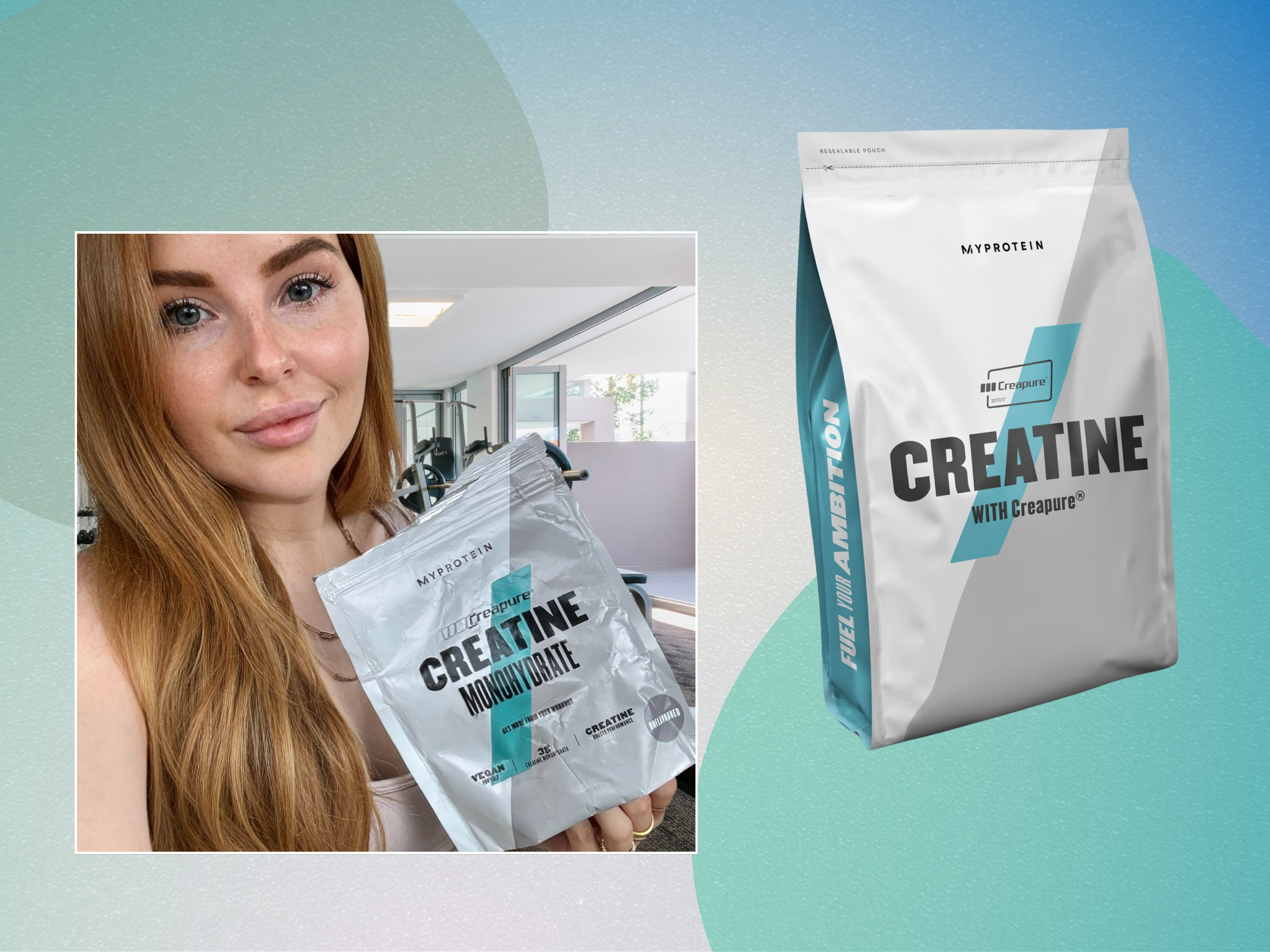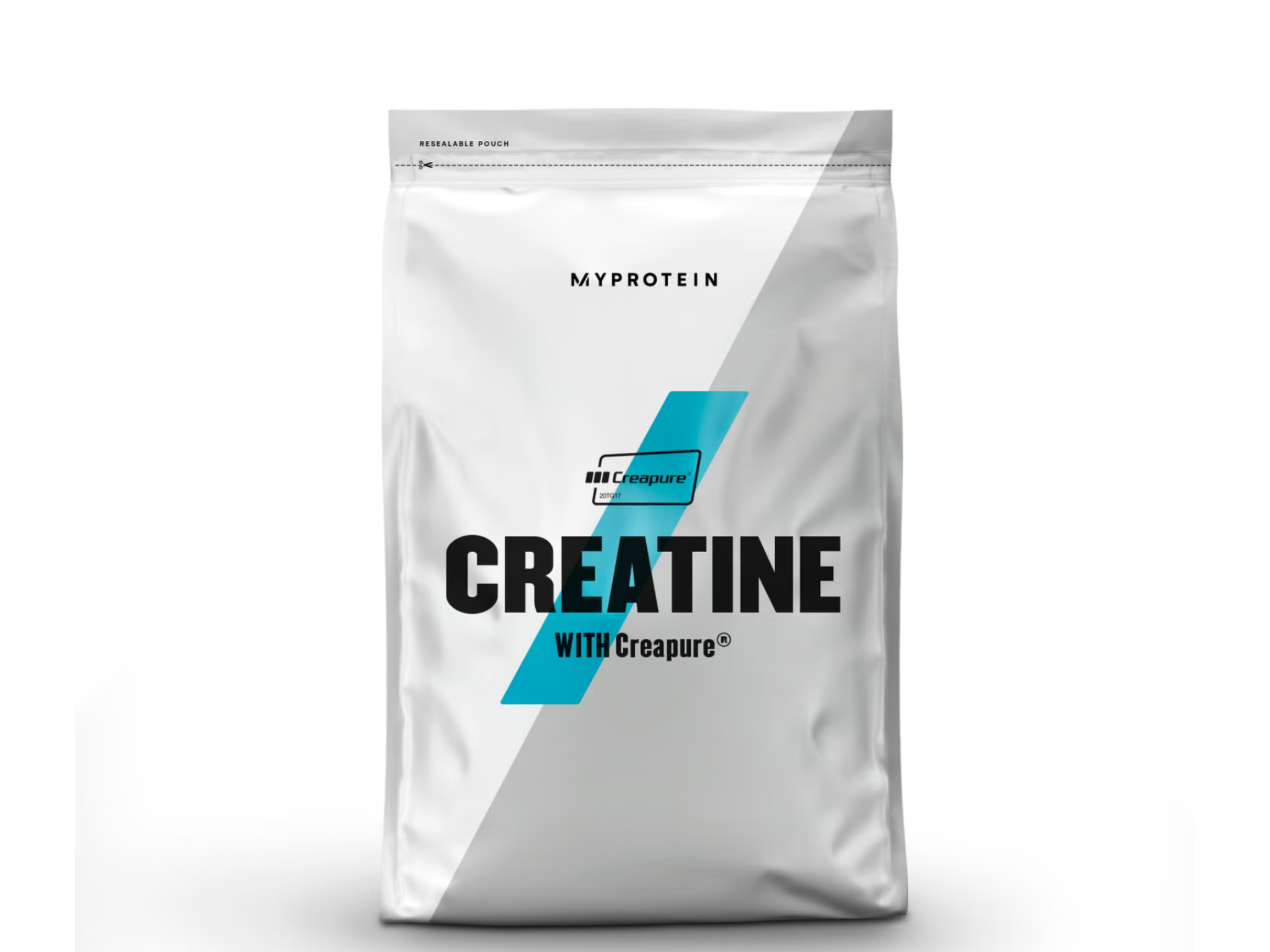The Independent's journalism is supported by our readers. When you purchase through links on our site, we may earn commission.
Women should be taking creatine especially in midlife – here’s why
This super supplement isn’t just for gym bros and weightlifters

Your support helps us to tell the story
From reproductive rights to climate change to Big Tech, The Independent is on the ground when the story is developing. Whether it's investigating the financials of Elon Musk's pro-Trump PAC or producing our latest documentary, 'The A Word', which shines a light on the American women fighting for reproductive rights, we know how important it is to parse out the facts from the messaging.
At such a critical moment in US history, we need reporters on the ground. Your donation allows us to keep sending journalists to speak to both sides of the story.
The Independent is trusted by Americans across the entire political spectrum. And unlike many other quality news outlets, we choose not to lock Americans out of our reporting and analysis with paywalls. We believe quality journalism should be available to everyone, paid for by those who can afford it.
Your support makes all the difference.With billions of views for the hashtag #creatine on TikTok, the supplement is having a moment – and it shouldn’t come as a surprise. Previously the mainstay of bodybuilders and gym bros, creatine helps maintain the energy supply to your muscles, especially when they’re under strain. It also helps with increasing muscle growth and speeds up recovery. But despite what you might think, creatine supplementation isn’t just for gaining muscle mass. Its real function is building strong muscles and aiding longevity into later life. So naturally, it’s something everyone can benefit from taking.
The words “muscle mass” might seem alarming to those who’d rather maintain the body they have, or who are looking to shed some weight, but creatine isn’t a supplement that will bulk you up – unless you’re specifically training to bulk up. Creatine is a chemical that, like many other supplements, is naturally found in the body. Its main responsibility is providing energy for muscles so without it, you might feel weak or experience cramping.
It works by increasing the body's store of phosphocreatine – the molecule that helps produce adenosine triphosphate (ATP). ATP is the primary source of energy source for your cells, particularly during short bursts of intense physical activity – which is why creatine has always been a favourite with weightlifters.
Athletes top up their creatine levels to send more energy to muscles and to help them recover and obviously, if you train a lot, creatine can also help you grow your muscles. But it’s not a magic bullet. Your exercise style would have to be focused on intense muscle growth to see intense muscle growth. It’s not a steroid and it’s also found in certain foods like red meat, tuna, chicken, walnuts and cheese, which are part of a balanced diet.
Myprotein creatine: £16.99, Myprotein.com

As we age our muscles and tissues will begin to weaken, recovery after exercise will become harder and we might be more prone to accidents as we lose our strength and our skeletons become less robust. For women, the onset of menopause means that oestrogen levels will drop and impact moisture levels in the body affecting muscle elasticity. Creatine can help with slowing these processes down when combined with regular exercise, particularly strength training.
Strength training has been recommended for midlife women as a way of combating osteoporosis and supplementing muscle health with creatine can help to make this type of training much more manageable. Obviously, women of all ages can take creatine and the sooner you begin, the stronger your body will be and your muscles will struggle less with recovery.
A 2021 paper suggested that creatine not only increases strength, fat-free mass, and muscle morphology but also “has the potential to be a multifactorial therapeutic intervention across the lifespan in females, with little to no side effects.”
Studies have shown that creatine may help reduce inflammation, decrease soreness and prevent injury, which are all concerns that can crop up as women enter perimenopause and move into midlife. Then there’s the issue of brain fog – while 80 per cent of creatine is stored in your skeletal muscles, the other 20 per cent is stored in your brain. Recent research suggests that creatine may benefit brain health, as well as muscle health, boosting cognitive processing and function.
In short, there are a lot of benefits to taking this supplement. Of course, it won’t be perfect for everyone and in some cases creatine does encourage water retention in the body. It can also dehydrate you and withdrawal from it can make you feel fatigued. If you’re at all concerned about whether you can take it or not, consult with your doctor before starting.
Some people prefer to take creatine in capsule form, but if taking a lot of supplements doesn’t appeal to you, it might be preferable to add a scoop of creatine monohydrate to your coffee, tea or smoothie as part of your wellness routine. As with any supplement protocol, taking creatine requires consistency so start with a small scoop or a tablet a day and track your progress as you go. And we’d recommend giving Myprotein’s a try.




